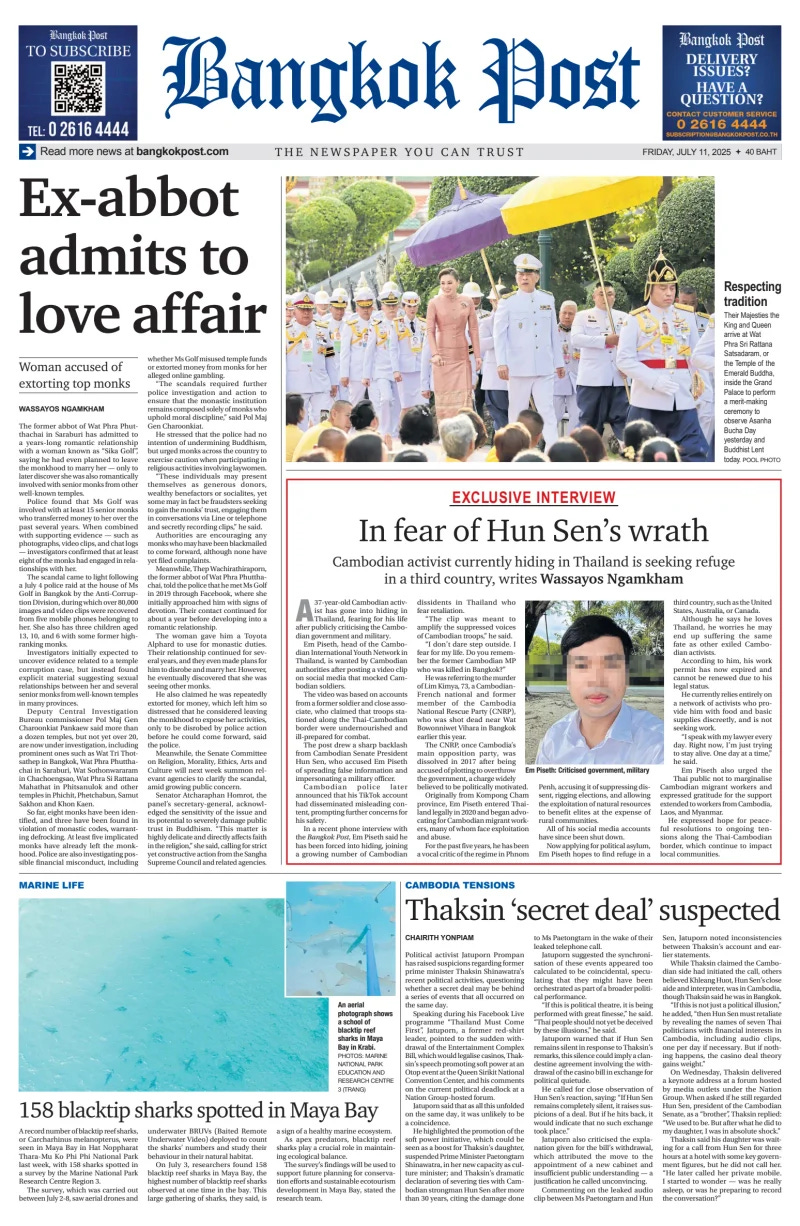💥 Bombs Fall, Promises Rise: Can Ukraine Rebuild Amid Relentless Attacks?
As Kyiv reels from the largest aerial assaults since the war began, Western leaders gather in Rome to talk reconstruction—but real security, and US backing, remain elusive.
As Russian drones and missiles rained down again on Ukrainian cities, Western officials and investors gathered in Italy to discuss how to rebuild the embattled country. Two people were killed and 25 injured in the capital, Kyiv, while civilian areas were damaged in the July 10 attack that included about 400 drones and lasted nearly 10 hours. The barrage came a day after Russia fired more than 700 drones into Ukraine in the largest aerial attack since the war began in February 2022. Speaking at the Ukraine Recovery Conference in Rome hours later, President Volodymyr Zelensky said his country needed a large-scale reconstruction program similar to the Marshall Plan, the US initiative to rebuild Europe following World War II. Hosted by Italian Prime Minister Giorgia Meloni, also in attendance was German Chancellor Friedrich Merz. Russia has significantly stepped up its aerial bombardment of Ukraine this year, slowing investor appetite for new projects in the war-torn country, even as US President Donald Trump pushes Moscow to agree to a cease-fire. Earlier in the day, the leaders of the UK and France huddled virtually with their Italian and German counterparts. Notably, the call included two US senators co-sponsoring a bill to place 500% tariffs on goods from countries which continue to buy Russian oil. UK Prime Minister Kier Starmer and French Prime Minister Emmanuel Macron spoke bilaterally in London about plans for a peacekeeping force to support Ukraine once the war ends. The success of the coalition’s operation hinges on US backup with airpower or other military assistance, but the Trump administration has made no public commitment to provide support. And even current US military support to Ukraine is in question, France 24 reported.
German Chancellor Friedrich Merz told the Ukraine Recovery Conference in Rome on Thursday that Germany is prepared to purchase US-made Patriot surface-to-air missile defense systems for Kyiv. "We are also prepared to purchase additional Patriot systems from the US to make them available to Ukraine," Merz said. The Patriot is one of the world's most advanced air-defense systems and is capable of intercepting aircraft as well as ballistic and cruise missiles. To date, the US has only approved the delivery of three Patriot missile batteries to Kyiv — and that was under US President Donald Trump's predecessor Joe Biden. Merz said he asked Trump last week to deliver more of the Patriot systems. "The Americans need some of them themselves, but they also have a lot of them ... It has not yet been finalized whether a delivery will be made," Merz added - DW
US Secretary of State Marco Rubio says he told his Russian counterpart Sergei Lavrov about US President Donald Trump's frustration over the lack of progress in ending the Ukraine war, DW reported. "I echoed what the president said, both a disappointment and frustration at the lack of progress," Rubio told reporters after meeting Lavrov for 50 minutes on the sidelines of the ASEAN summit in Malaysia. "It was a frank conversation. It was an important one," he said, adding that he had repeated Trump's public criticism that Russia has shown too little flexibility to help resolve the conflict. Rubio also revealed the US and Russia exchanged fresh ideas for possible Ukraine peace talks. "I think it's a new and a different approach," he said when asked by a journalist whether these were concepts that had not been considered before by Trump. "I wouldn't characterize it as something that guarantees a peace, but it's a concept that I'll take back to the president," he added, without sharing specifics.
The Russian army has suffered more casualties during its summer offensive in Ukraine than at any other point in the war that began in February 2022. According to The Economist, Russia may have lost around 31,000 people killed on the battlefield between May 1 and July 9. At the same time, Russia’s total losses over the entire conflict range from 900,000 to 1.3 million people, of whom 190,000 to 350,000 died. The Russian army has paid for its fastest advances on the front in the last two years with record losses. However, they still do not exceed a modest 15 square kilometers per day. As calculations show, over the past year, Russia has sacrificed the life of one soldier for an average advance of 0.038 square kilometers. Even at a faster pace in the last month, the Russian army will not be able to reach the administrative borders of Luhansk, Donetsk, Zaporizhia and Kherson regions until February 2029. And to capture all of Ukraine, it will take another 89 years of fighting, The Economist notes - Moscow Times
Why Ukraine’s Media Recovery Must Be at the Center of Reconstruction Talks
As the Ukraine Recovery Conference takes place in Rome, one glaring omission should trouble anyone who cares about the country’s future: the near-total absence of Ukraine’s devastated media sector from the agenda.
While tourism and sport were given space on the programme, there was no dedicated session to address the state of Ukrainian media—despite repeated appeals over the past two years to senior officials in President Zelensky’s circle, including Prime Minister Denys Shmyhal and Deputy PM Yulia Svyrydenko. Their responses? Shrugs and stonewalling.
The toll on Ukraine’s media sector is staggering: dozens of journalists killed, more than 300 outlets shuttered, entire newsrooms displaced or destroyed, and a dramatic collapse in advertising revenues. Russian missiles have even targeted media infrastructure, including attacks on the Channel 5 TV channel and a media training center in Kyiv during this very conference.
To make matters worse, President Zelensky’s government-controlled “telemarathon”—a wartime broadcasting initiative—has siphoned resources and audiences away from independent outlets, further weakening the ecosystem that once served as a vibrant check on power.
This isn’t just a media story—it’s a democracy story. A coalition of 45 Ukrainian and international media organizations, including Reporters Without Borders, published an open letter condemning the exclusion of media from URC2025’s main programme. “The lack of any dedicated session... sends a troubling and deeply concerning message,” the letter reads. “Media must be part of the recovery conversation. Not at the sidelines—at the centre.”
They’re right. As I wrote in The New York Times, a majority of Ukrainians cite corruption as their second-biggest concern after Russian aggression. A free and independent media is the best antidote to corruption—and a crucial pillar of any serious reconstruction effort.
Investors, donors, and the Ukrainian public all depend on the media to provide transparency and accountability. To sideline the sector at a recovery conference is not just shortsighted—it’s reckless.
There can be no meaningful reconstruction without a robust, independent press. The media must not be an afterthought. It must be at the table.
In this primetime interview on BBC World News with presenter Annita McVeigh, I suggested it may be game over when it comes to Vladimir Putin listening to Donald Trump. As Russian media openly mocks Trump—accusing him of blowing hot and cold—and Moscow launches a second consecutive day of brutal drone and missile attacks on Kyiv, I said it’s clear Putin no longer cares what Trump or the West thinks. I went on to outline what real leverage looks like: U.S. pressure on Gulf countries, Turkey, Thailand, and others enabling Russia to dodge sanctions and enrich its elites. “When that stops,” he says, “the rubber hits the road—and Putin will feel the pain.”
European officials reached a new deal with Israel to allow desperately needed food and fuel into Gaza, the European Union’s foreign policy chief said Thursday, hours after an Israeli airstrike killed 15 people, including 10 children, waiting for help outside a medical clinic. The children’s deaths drew outrage from humanitarian groups even as Israel allowed the first delivery of fuel to Gaza in more than four months, though still less than a day’s supply, according to the United Nations. The Israeli military said it was targeting a militant when it struck near the clinic. Security camera footage outside the clinic in the central Gaza city of Deir al Balah showed about a dozen people squatting in front of the clinic when a projectile explodes a few meters (yards) away, leaving bodies scattered. Meanwhile, Israeli Prime Minister Benjamin Netanyahu prepared to leave Washington after meetings with President Donald Trump, apparently without finalizing a temporary ceasefire advocated by the White House - AP
The US Army plans to spend more than $1.3 billion on Patriot missiles for the fiscal year beginning Oct. 1, and has quietly quadrupled its overall purchase target for the air defense weapon that has proven critical not just for Ukraine but also for US forces in the Middle East. On April 16, a panel of high-ranking Army officials who recommend armament requirements raised its buying plan for the most advanced Patriot interceptor to 13,773 from 3,376, according to documents accompanying the service’s fiscal 2026 budget request. The panel sets requirements but those don’t automatically translate into hard budget numbers or near-term contracts. Lawmakers are crafting policy and funding bills for the Defense Department that could take those projections into account. The new figure signals the Army’s commitment to the Patriot missile, which is under increasing demand as the US and its allies and partners seek to bolster air and missile defenses - Bloomberg
French President Emmanuel Macron and UK Prime Minister Keir Starmer announced an agreement on a pilot programme to return migrants crossing the English Channel on small boats. While the initial programme will be limited to a few migrants, Starmer hailed the arrangement as a "groundbreaking" pilot scheme. "There is no silver bullet here, but with a united effort, new tactics and a new level of intent, we can finally turn the tables,'' Starmer told reporters at a joint news conference in London. “For the very first time, migrants arriving via small boat will be detained and returned to France in short order.” After hosting Macron for a three-day state visit that included a carriage procession to Windsor Castle with King Charles and a state banquet, Starmer was handed a much-desired boost when Macron said France had agreed to a migrant returns scheme. Under the agreement, Britain will send some of those who cross the Channel in small boats back to France while accepting an equal number migrants who are judged to have legitimate claims to asylum in the UK. Starmer had pushed for the arrangement, known as the “one in, one out” deal, in hopes of discouraging people from making the dangerous crossing - France 24
Thailand’s beloved pygmy hippo Moo Deng turned one at Chon Buri’s Khao Kheow Open Zoo, drawing thousands of fans and media from around the world. The four-day festival featured parades, auctions, and meet-and-greets, celebrating the internet sensation who gained over five million followers for her adorable antics and viral charm - Bangkok Post





